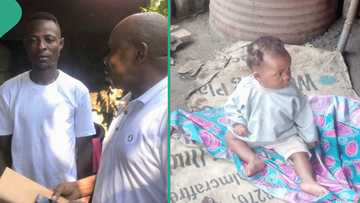From Grace to Grass: How Luvo Manyonga Went From a Millionaire to Grant Dependent
- Luvo Manyonga, a former Olympic athlete, earned millions from brand endorsements, which he misspent
- In an interview, the track and field star shared that he now relies on money from the government
- Walter De Wet, a financial advisor in Cape Town, explained to Briefly News how athletes can secure their funds after leaving the industry
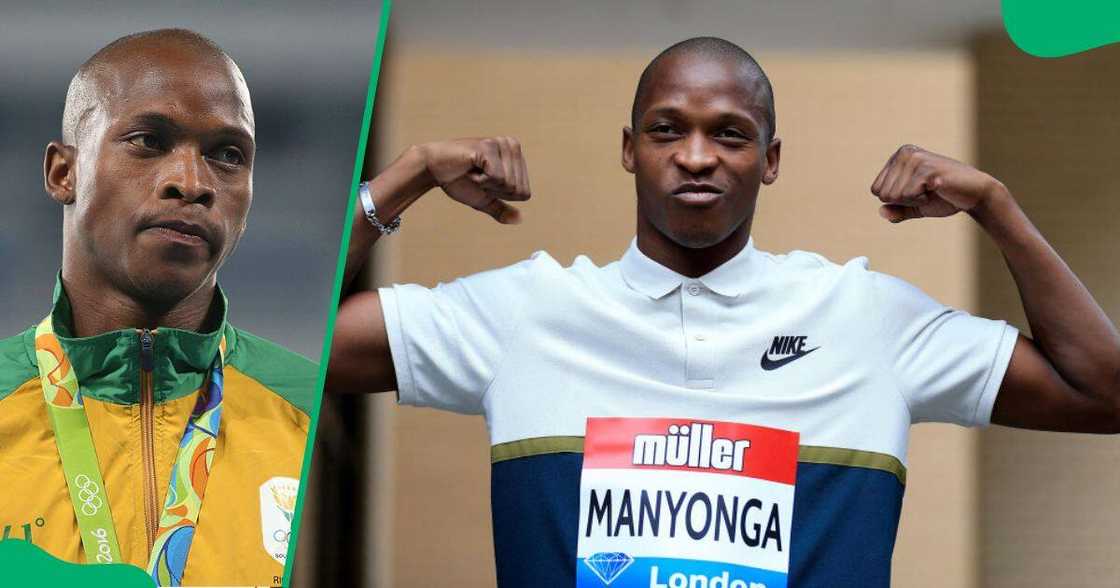
Source: Getty Images
2016 Olympic silver medallist Luvo Manyonga, who went from rags to riches, recently made headlines when he shared how he went in the opposite direction, losing millions and now relying on government funds.
Briefly News previously reported on the track and field athlete's conversation with Radio 2000, in which he said he blew R8.4 million after sharing his financial woes on the Mzansi Magic show I Blew It.
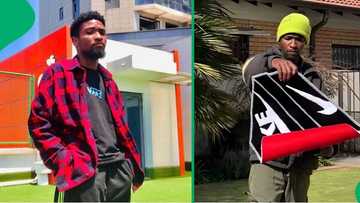
Read also
"These are so cool": Petroleum engineering graduate makes custom Nike rugs, talent impresses Mzansi
Rocky road to millions
A star in the sandpit, Luvo was already alleged to be abusing drugs in 2012 and received an 18-month suspension after crystal meth was found in his urine, as per The South African's account of the show on which Luvo appeared. The ban did not stop him from continuing to use drugs and even robbing people.
PAY ATTENTION: Briefly News is now on YouTube! Check out our interviews on Briefly TV Life now!
After participating in the Rio de Janeiro Olympics in 2016, wealth knocked on Luvo's door through endorsement deals with Nike in 2017 and 2018, where he pocketed millions of rands.
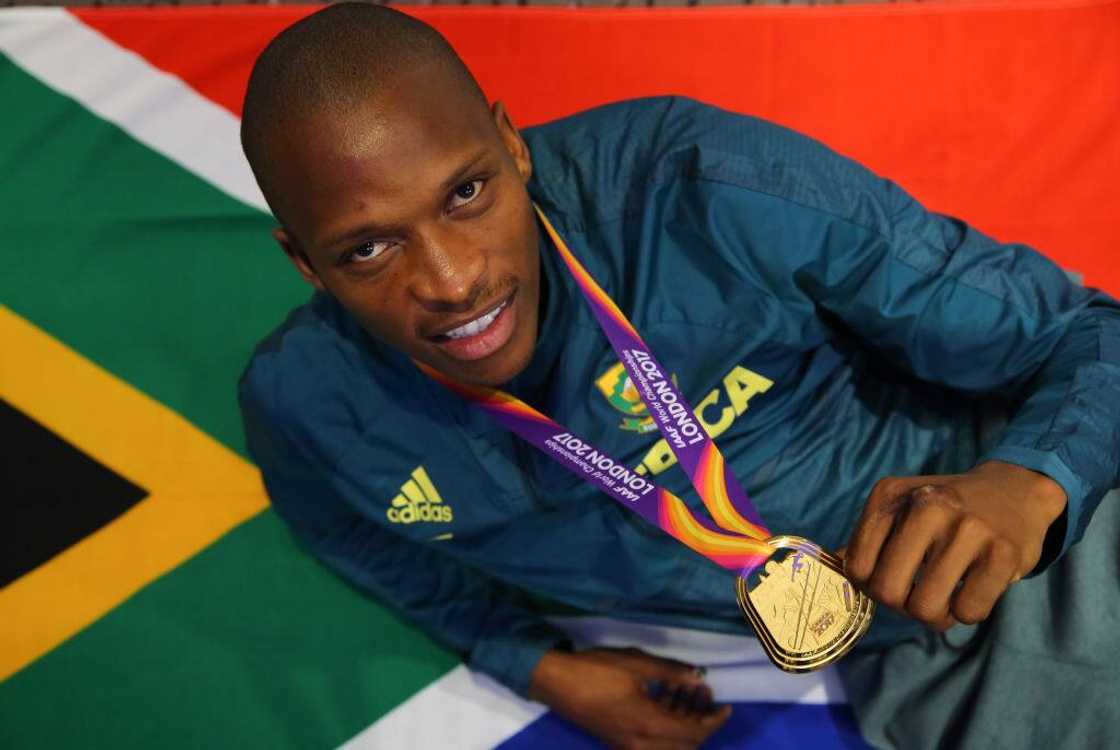
Source: Getty Images
While speaking to Radio 2000's host, Thabiso Mosia, Luvo stated that he realised he was broke when he had R900,000 left in his account, which he further spent.
Where did the R8.4 million disappear to?
While some of the money reportedly supported Luvo's drug addiction, the rest he spent on women and expensive purchases.The South African shares that Luvo also mentioned on the show that this came after he renovated his parents' home in Paarl, Western Cape and financially supported the family and community.

Read also
"As long as you eat": Donald Moatshe's hilarious Durban July outfit jibe tickles Mzansi's funny bone
Regarding the cars, Luvo reportedly spent R20,000 a day renting luxury vehicles and R100,000 on insurance after he wrecked them.
He said:
"I would hide my drugs between the car seats and struggle to get them out and tear the seat… In three days, I’d burst the car tyres... I bought the German Coupe for roughly R900,000."
Sphelele Kwaza, Luvo's uncle and friend, told producers that at least R400,000 was spent on monthly accommodation at a fancy hotel, where they partied to their heart's content.
"We were daredevils. We were called the Illuminati. They called him Lucifer. I was Hellboy. We were the Illuminati in Gqeberha… We would blow R300,000 in two days on drugs."
Olympic athlete now depending on government grant
Luvo, who now lives with his aunt in Queenstown, is currently serving a four-year ban, which is set to end in December after he missed a mandatory drug test in 2019.
According to reports from SABC Sport, Athletics South Africa (ASA) Athletes Commission Chairperson Hendrick Mokganyetsi confirmed that the national federation will assist Luvo by enrolling him in a coaching course and helping him on his journey back to the sport that earned him his millions.
For now, the athlete is "depending on the R350 President Cyril Ramaphosa is giving us" and contributing his time as an ambassador to Clinix Health Group.
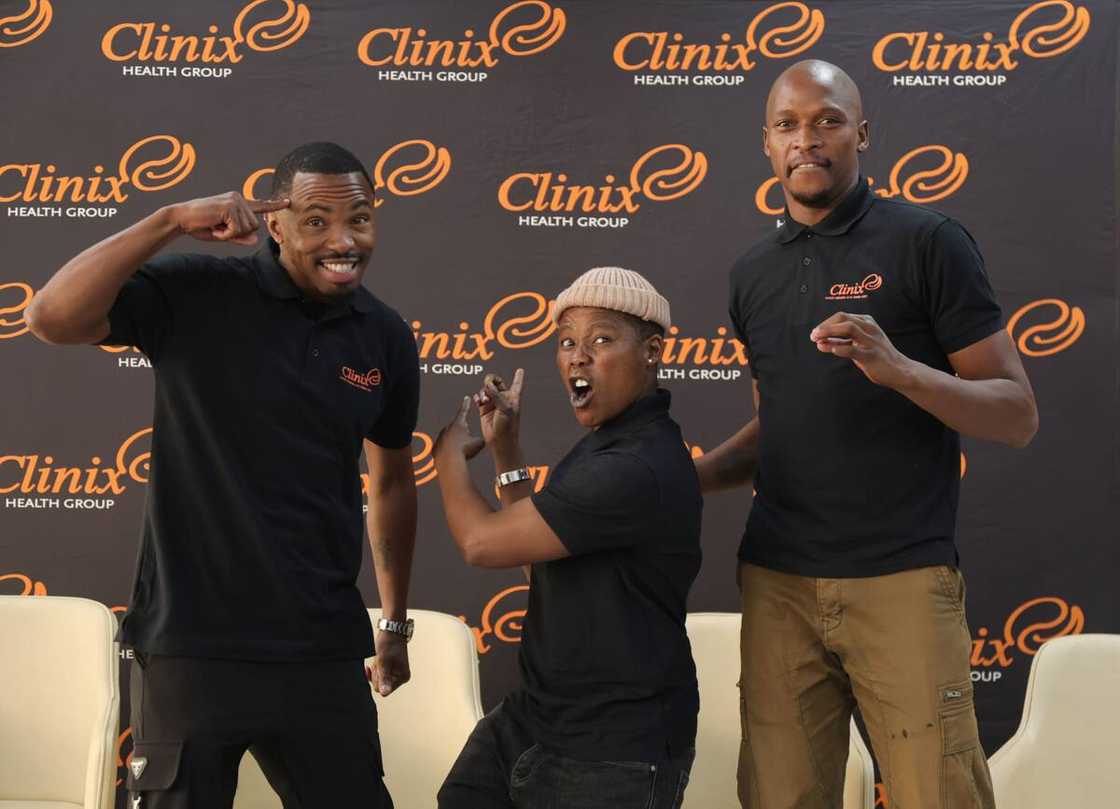
Source: Facebook
He told Thabiso:
"I can assist in creating awareness about substance use disorders and addiction. I believe that through telling my story, I can help others. I'm in a much better space now."
Financial advisor provides information on saving money
Speaking to Briefly News, Walter De Wet, a Cape Town-based financial advisor at Mzingisi Brokers, explained how sports stars can ensure their financial well-being after retirement:
"Retirement could mean two things for them: Stepping down from their professional sports career before normal retirement age or after reaching retirement age.
"Generally, I find that people who have acquired large sums of money don't realise that it will not last forever and start spending on things they want rather than things they need and giving to their friends and family. This behaviour normally erodes their money without them realising it."
Walter adds:
"An important fact for the sports star in this instance is to get the help of a reputable financial advisor who can provide insight as to what options are available to them so that they could make an informed decision going forward.
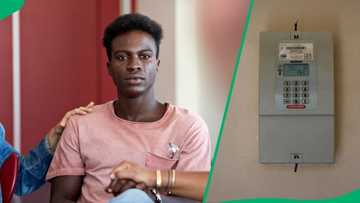
Read also
“We are in a deep mess”: Man showcases R300 electricity units in a video, stuns South Africans
"They should take into account the impact of taxation, fees, accessibility, inflation, diversification and how long the money could sustain them."
How to handle your finances
The finance expert also shared the steps people should take once they reach financial success, telling the publication that it is advisable to have a clear financial plan (whether it be income they require or saving for the future) and stick to it.
"In the case of growing their money, have funds available in bank accounts for immediate use, funds that are accessible for short-term objectives or for what I normally would refer to as 'emergency funds' (this could be done via collective investments or even various bank vehicles), and then a medium to long-term investment which will provide growth opportunities."
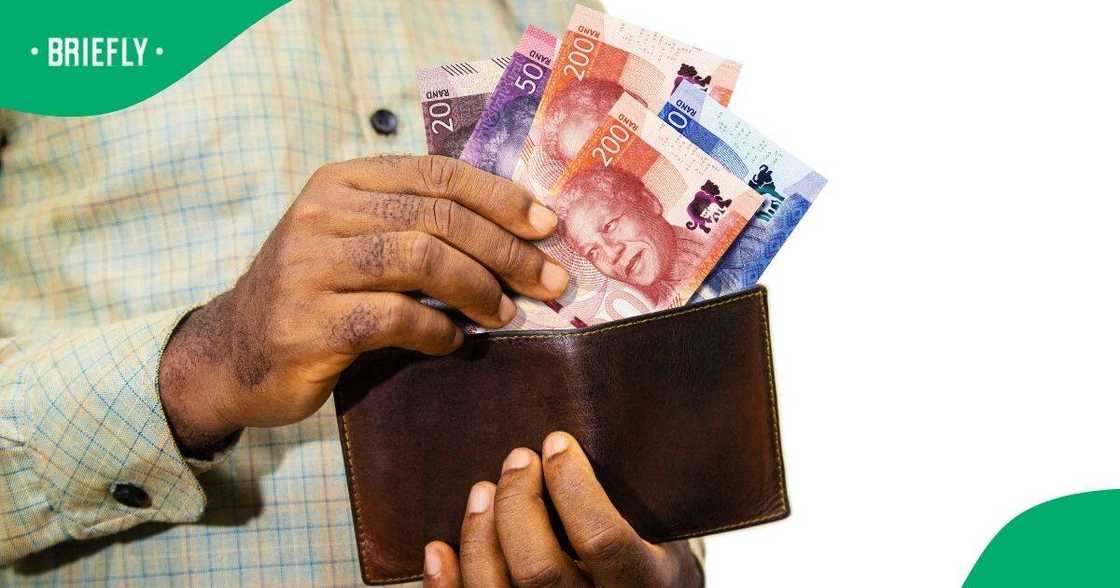
Source: Getty Images
On the topic of an individual's income, Walter explains that it is crucial to understand that the acquired funds are discretionary money. This means that they are not subject to any retirement laws, and careful consideration must be given to which vehicles are used for this purpose, considering tax implications, cost-effectiveness, and how long they need this income.
He concludes:
"In both of the above instances, it is absolutely vital to include the well-being of their families in the event of their death, as it would not be a good thing if their dependents don't have access to money to sustain themselves.
"Lastly, they should ensure that they have a valid and professionally drafted Last Will and Testament in place."
Brenda Fassie's son shares how he blew R4 million on drugs
In a similar article, Briefly News reported about Brenda Fassie's only son, Bongani Fassie, who opened up about the ordeals he went through following his mother's death.
The reality TV star charted social media trends when he narrated how he became broke after spending more than R4 million on drugs on an episode of I Blew It.
PAY ATTENTION: Follow Briefly News on Twitter and never miss the hottest topics! Find us at @brieflyza!
Source: Briefly News


